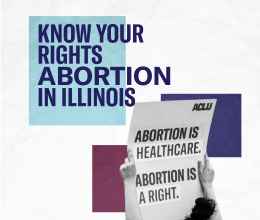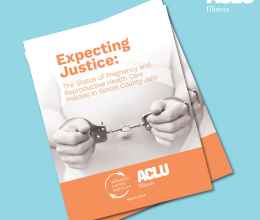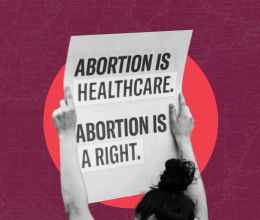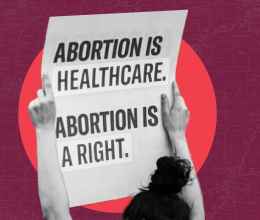Score a victory for reproductive justice in the Illinois Appellate Court on Friday! Ruling that an unimplanted, fertilized egg is not a "human being" for purposes of a wrongful death action, the Illinois Appellate Court today reversed a 2005 decision by a Cook County Judge.
The decision strikes a blow for scientific sanity and access to reproductive health care. Had the lower court's decision been allowed to stand, an Illinois couple would have been able to sue their fertility clinic for tens of thousands of dollars because the clinic inadvertently had destroyed unimplanted eggs stored at the facility. The lower court had accepted the argument that a human being is created when an egg is fertilized, regardless of whether the fertilized egg is implanted in a woman's body or left in a Petri dish. Left undisturbed, the lower court's decision could have limited the ability of women in Illinois to contraceptive services and genetic testing. Moreover, the decision would curb the ability of couples in Illinois to use reproductive technologies, such as in vitro fertilization, in starting a family.
In reaching its conclusion, the Appellate Court properly noted that the Illinois law cited by the Cook County Judge was never intended to grant rights to an unimplanted, fertilized egg. This built on an argument that the American Civil Liberties Union of Illinois advanced in an amicus curiae brief filed in the case. Specifically, the ACLU noted that the decision permitting the wrongful death action to go forward relied on antiquated, scientifically-invalid Illinois abortion laws that long ago were blocked from enforcement by federal courts. Federal courts blocked these laws because defining a fertilized egg as a "human being" would have banned abortion, some forms of birth control and many forms of assisted reproduction and genetic testing.
The importance of this decision can be seen in large measure by the efforts of abortion opponents. Many anti-abortion extremists hailed the lower court's decision in 2005 as an important step in their concerted campaign to block access to reproductive health care and contraceptive services in our state.
The rhetoric used in Illinois around this decision fits a disturbing trend that we have seen across the nation - namely, that anti-abortion extremists now are focusing their attention increasingly on limiting access not simply to abortion but to contraception as well. In Colorado, for example, a ballot measure set to be decided this November would grant "personhood" to a fertilized egg, meaning that many forms of contraception that could prevent a fertilized egg from attaching to the uterus could be targeted for legislative bans. This effort seems to reveal the real agenda of the anti-abortion activists - to allow government bureaucrats - not women - the power to make decisions about birth control, abortion, genetic testing and pregnancy.
In this effort, the anti-abortion extremists seem to be getting a big assist from the out-going Bush Administration. Recently, the Department of Health and Human Services issued a proposed regulation that would allow physicians and health care workers to refuse to provide medical care. A close reading of the proposed regulations reveals that they could permit a physician or health care worker who personally objects to contraception or other reproductive health care to deny meaningful information and care to their patients about important reproductive health options. We are pleased that the Illinois court put the brakes on this movement in Illinois today.
Call 1-855-435-7693
ICIRR hotline to report ICE activity in your community





